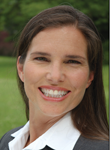Kirsty Duncan is a Canadian medical geographer and current MP for the Liberal Party of Canada in the Toronto riding of Etobicoke North. She currently serves on the House of Commons Standing Committee on Health.
After graduating from Kipling Collegiate Institute in 1985 as an Ontario Scholar, Duncan studied Geography and Anthropology at the University of Toronto. She then entered graduate school at the University of Edinburgh in Scotland, and completed a Ph.D. in geography in 1992.
From 1993 to 2000, Duncan taught meteorology, climatology, and climate change at the University of Windsor. In 1992, as she became increasingly aware of the increasing probability of a global flu crisis, she was led to investigate the cause of the similar 1918 Spanish flu pandemic, saying, “I was horrified we didn’t know what caused [Spanish flu], and also knew that if we could find fragments of the virus, we might be able to find a better flu vaccine”.
Though at the time she “knew nothing about influenza”, she began what she called a “six-month crash course in virology”. Eventually, she began searching for possible frozen samples of lung and brain tissue that might contain the virus. Her initial thoughts led her to think of Alaska, as it contains large areas of permafrost, which would leave the viruses intact, but the search proved fruitless.
Eventually, after several years of searching, Duncan learned of seven miners who had died from the Spanish flu and were buried in the small town of Longyearbyen, Norway, an area that would contain permafrost. She then began assembling a team of scientists to accompany her. After several more years of preparation, which involved garnering various permissions to perform the exhumations, the ground survey began in 1998. However, the samples were not viable, as the bodies were not in the permafrost, and the expedition was ultimately proved a disappointment.
In 2003, Duncan wrote a book about her expedition, entitled Hunting the 1918 Flu: One Scientist’s Search for a Killer Virus. Published by the University of Toronto Press, it details Duncan’s process and the expedition itself. After the book’s publication, Duncan began speaking about pandemics, which led her to begin teaching corporate social responsibility at the University of Toronto’s Rotman School of Management. In 2008, Duncan published a second book, Environment and Health: Protecting our Common Future.
Duncan was an adjunct professor teaching both medical geography at the University of Toronto and global environmental processes at Royal Roads University, and served on the Intergovernmental Panel on Climate Change, an organization that won the 2007 Nobel Prize with Al Gore.
